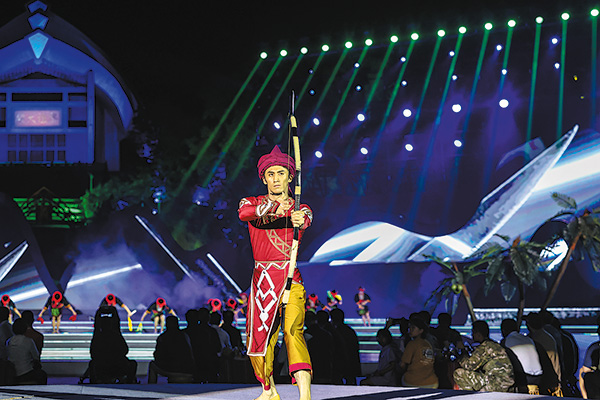

Among them are 70 inheritors of intangible cultural heritage, including performers of the Hainan dragon-summoning dance, Li folk songs, bamboo and wood musical instruments, and the panhuang dance of the Miao ethnic group, which is a tribute commemorating their ancestor, "Emperor Pan".
"The real-life setting of the show blows my mind with its colorful Li and Miao ethnic cultures and the vivid and moving storyline," says Wang Sheng, a spectator from Haikou, the capital city of Hainan.
"I particularly enjoy the way that Monkey King never appears in the Adventures in Wuzhi Mountain, but that the show's protagonist Shuiman refers to the literary hero from time to time, and the protagonist himself becomes a loyal, responsible and courageous 'Monkey King' to safeguard his hometown. I believe the director is trying to convey the idea that everyone can be a Monkey King," Wang adds.
Chen says: "We hope to provide a platform in which actors and spectators can have a dialogue with the Monkey King across time and space, and the spirit of the legendary figure can bring endless hope to the spectators."
The show was named Adventures in Wuzhi Mountain, as the crew aims to deliver an unexpected artistic performance, according to Chen.
"Adventures refer to the unexpected ways people meet up and form interesting social relationships," he explains.
In the show, for example, there is a wise old man named Uncle Dragon, who witnesses Shuiman growing into a young man.